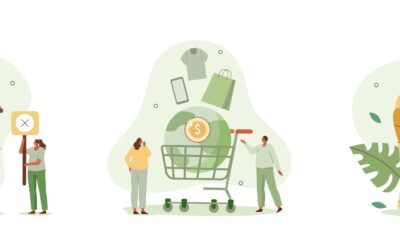

Environment
Has The Coronavirus Led Us To Be More Eco-Conscious?
Should someone want to talk to you about the “positive impacts of the coronavirus”, your first reaction might well be to look at them with a curious head tilt. There is, however, one thing that is undeniably true concerning the topic – the lockdown measures enforced during the pandemic have given the planet a much-needed rest.
It might be tough to remember life before COVID, but it’s not that long ago that talk of climate issues was at fever pitch. Of course, the focus has naturally shifted towards the ongoing health crisis, but the shutdown of life as we know it over the past 6 months has inadvertently answered the call of various ecological concerns.
With that in mind, what changes have we seen so far, and what legacy might those changes have for a hopefully greener future?
Alternative methods of transport
The first and most obvious green turn of the lockdown came in the form of our empty roads following the March lockdown announcement for all but essential services. For the following few weeks, UK traffic congestion dropped off a cliff, with the Guardian reporting in April that the country’s on-road activity had sunk to levels akin to those of 65 years ago. Like for like against April 2019, nitrogen dioxide levels were reduced by up to 60%.
While recent reports suggest we are headed back towards pre-lockdown traffic levels, the benefits of the past few months’ respite shouldn’t go unnoticed. The adoption of alternative methods of transport by many through the lockdown also bodes well, with many looking to public transport, walking and cycling to fulfil their daily mobility and fitness needs – a choice which many will hopefully retain as we move out of pandemic conditions.
A re-evaluation on sustainable products
The effects of the pandemic also seem have led to collective reflection towards sustainability. Having seen the positive environmental effects of the lockdown first hand, British attitudes to using sustainable products and living more eco-consciously have undoubtedly softened, with Bulb reporting that 37% of Brits have lived more sustainably since lockdown, while another survey from Targus states 66% of the UK intend to make more eco-friendly moves in the future.
Encouragingly, Targus also found that 75% of Brits would be open to using more eco-friendly products if they were made readily available, with the Independent saying the average Brit would be willing to up their annual spending by £3,654 a year in order to live more sustainably. Similar attitudes are shared across mainland Europe, with France leading the charge for eco-conscious intention.
Carrying things forward
So, positive signs from the lockdown period with potential for a long-lasting positive legacy, but how realistic is it to expect to keep this progress up?
Where our cars are concerned, it looks like the writing is on the wall, for now, that things will return to the pre-COVID norm. However, the exposure to alternative methods of transport for many travellers may encourage a significant chunk of permanent switches or changes in typical behaviour.
You may, for example, have taken up cycling during lockdown for fitness purposes but will carry it on for general commuting. Or you might try and get the train for more than just if you’re looking to travel to King’s Cross. The shift in business attitudes to working from home over this period also bodes well for the Monday to Friday traffic of the future. The less people needed in the office, the less need to travel altogether
Where the circumstances of the pandemic are more likely to have a long-lasting environmental effect are from a product and personal practice standpoint. With numerous surveys and predictions pointing towards a significantly more eco-conscious UK and Europe, patterns of consumerism could be forever changed for the better.
The big question to ask is: what will you do to help out?






























